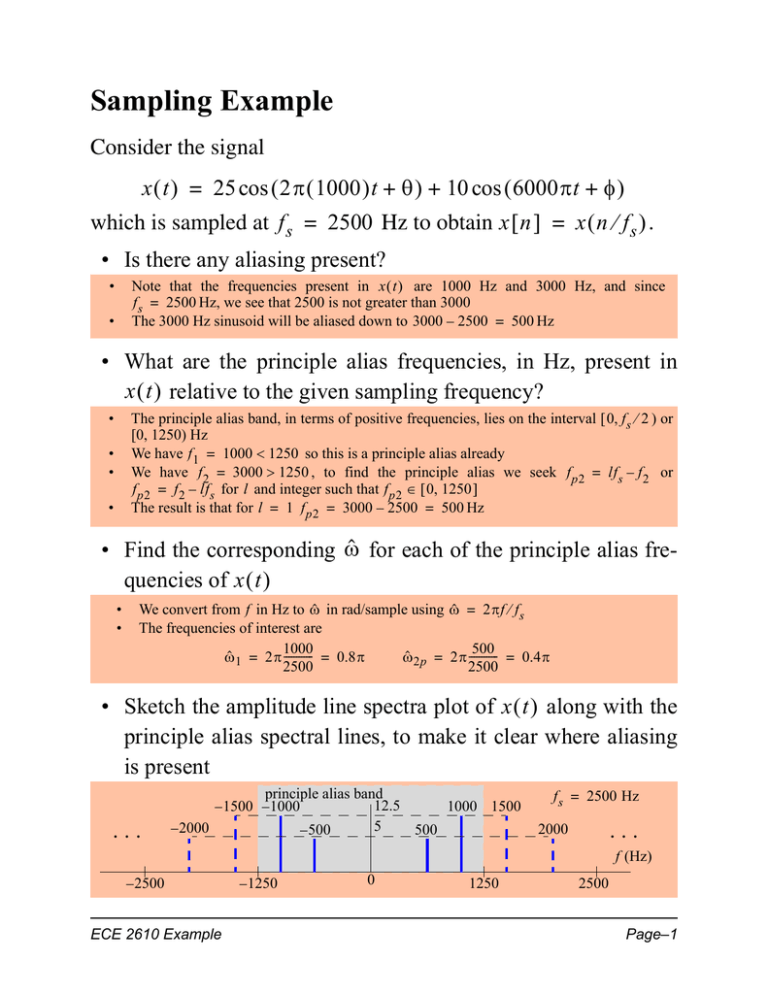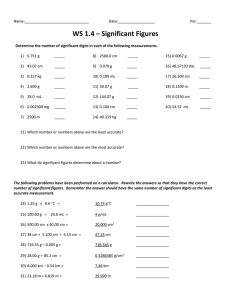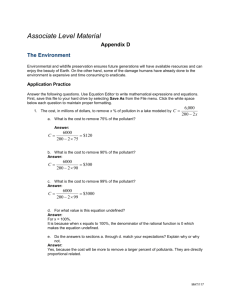Sampling Example
advertisement

Sampling Example Consider the signal x t = 25 cos 2 1000 t + + 10 cos 6000t + which is sampled at f s = 2500 Hz to obtain x n = x n f s . • Is there any aliasing present? Note that the frequencies present in x t are 1000 Hz and 3000 Hz, and since f s = 2500 Hz, we see that 2500 is not greater than 3000 The 3000 Hz sinusoid will be aliased down to 3000 – 2500 = 500 Hz • • • What are the principle alias frequencies, in Hz, present in x t relative to the given sampling frequency? The principle alias band, in terms of positive frequencies, lies on the interval [ 0 f s 2 ) or [0, 1250) Hz We have f 1 = 1000 1250 so this is a principle alias already We have f 2 = 3000 1250 , to find the principle alias we seek f p2 = lf s – f 2 or f p2 = f 2 – lf s for l and integer such that f p2 0, 1250 The result is that for l = 1 f p2 = 3000 – 2500 = 500 Hz • • • • • Find the corresponding ̂ for each of the principle alias frequencies of x t • • We convert from f in Hz to ̂ in rad/sample using ̂ = 2f f s The frequencies of interest are 1000 500 ̂ 1 = 2 ------------ = 0.8 ̂ 2p = 2 ------------ = 0.4 2500 2500 • Sketch the amplitude line spectra plot of x t along with the principle alias spectral lines, to make it clear where aliasing is present ... principle alias band 12.5 – 1500 – 1000 1000 1500 5 – 2000 – 500 500 f s = 2500 Hz ... 2000 f (Hz) – 2500 ECE 2610 Example – 1250 0 1250 2500 Page–1

